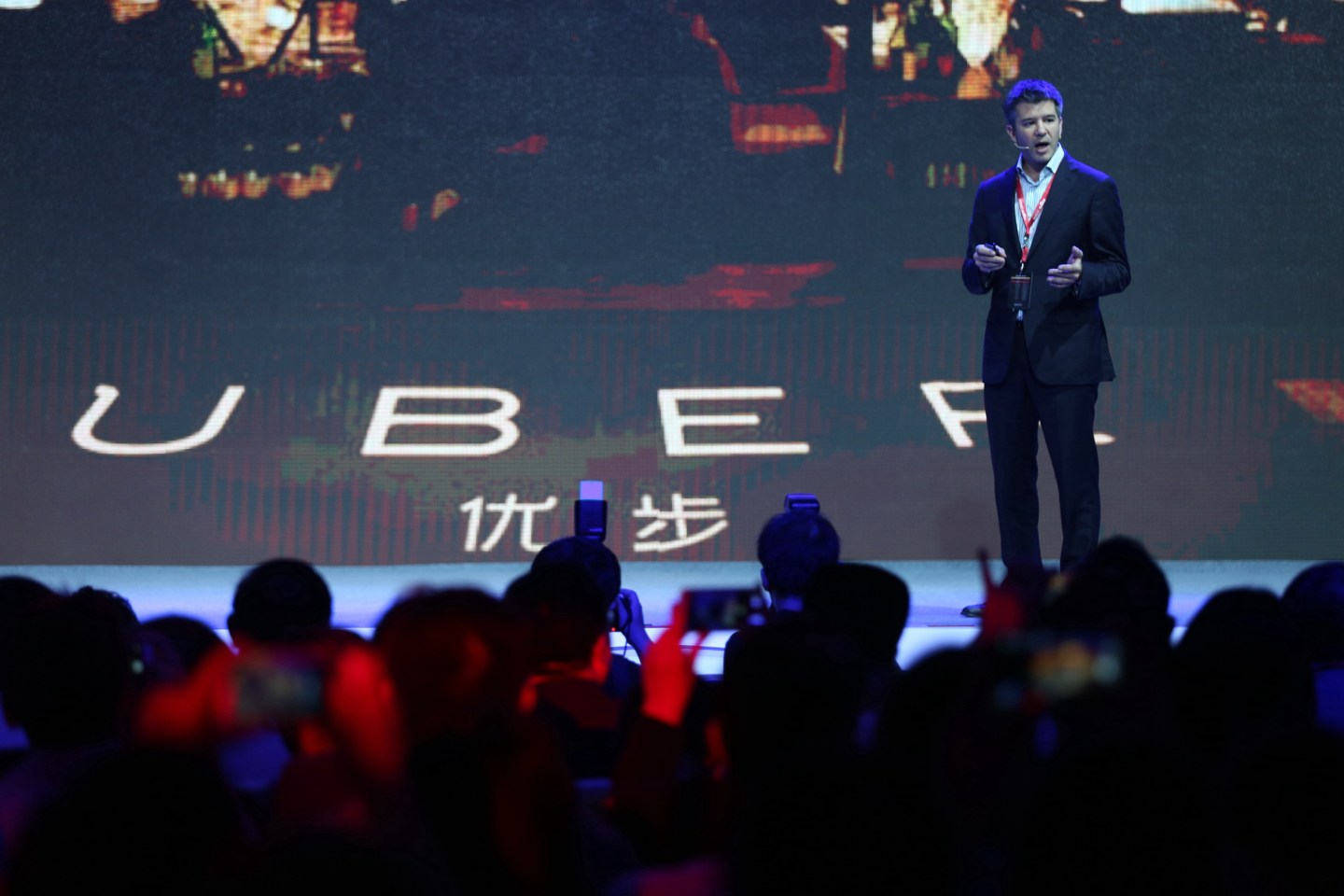Uber is reportedly losing over $1 billion a year to compete in China—one of its most important markets.
That was the revelation from CEO Travis Kalanick, who blamed the burn on competition with a rival ride-sharing company that’s been deeply engaged in a fight for China’s passengers, according to Betakit. Kalanick gave the huge spending as an example of “irrational funding going on” around the global startup scene:
We’re profitable in the USA, but we’re losing over $1 billion a year in China. We have a fierce competitor that’s unprofitable in every city they exist in, but they’re buying up market share. I wish the world wasn’t that way. I prefer building rather than fundraising. But if I don’t participate in the fundraising bonanza, I’ll get squeezed out by others buying market share.
That “fierce competitor” is widely believed to be Didi Kuaidi, the dominant app that is said to control around 80% of China’s private car-hailing app market. The company reportedly raised $3 billion in its last funding round in September, giving it a valuation of around $16.5 billion.
Didi Kuaidi also has some hefty backers in the form of Alibaba (BABA) and Tencent, two of China’s largest companies, and has teamed up with fellow peers Lyft and India’s Ola to fend off any incoming traffic from Uber.
While Uber’s China unit is no slouch in comparison—the last funding round valued it at $8 billion—the company has to spend aggressively to keep pace with its main competition.
